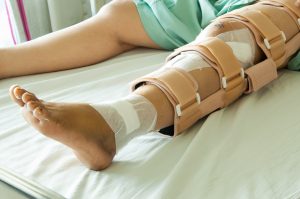 Now it’s the plaintiffs’ turn. The five victims of the Depuy Pinnacle artificial hip have answered the appeal of Depuy Orthopaedics and Johnson & Johnson in the Fifth Circuit Court of Appeals. And as they did at trial, the plaintiffs have come out fighting.
Now it’s the plaintiffs’ turn. The five victims of the Depuy Pinnacle artificial hip have answered the appeal of Depuy Orthopaedics and Johnson & Johnson in the Fifth Circuit Court of Appeals. And as they did at trial, the plaintiffs have come out fighting.
Recap of Depuy’s Appeal
A few weeks ago I wrote about the appeal brought by Depuy and Johnson & Johnson after a Texas jury awarded $502 million dollars to five plaintiffs. You can read about the Defendants’ appeal here. But to recap, Depuy and J&J argue that they were unfairly prejudiced by the plaintiffs’ team aggressive tactics at trial. They argue that Defendants are entitled to a new trial because the plaintiffs’ team had “a strategy” to “inflame the jury through highly prejudicial evidence and wholly inappropriate argument.”
 North Carolina Product Liability Lawyer Blog
North Carolina Product Liability Lawyer Blog








